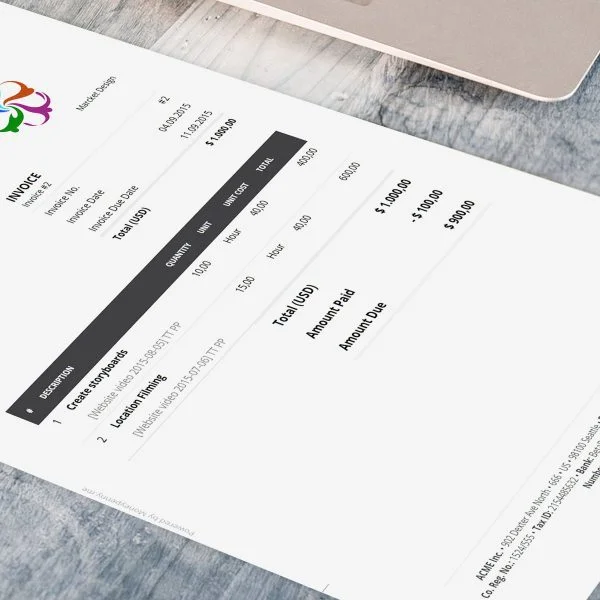What is a commercial invoice?
If you run a small international business you’ve probably either received or had to issue a commercial invoice. Commercial invoices allow foreign trade and shipment to occur more seamlessly and easily.
A commercial invoice tells the receiving country about the value of the goods at customs, “type of export”, the reason for export and the weight and quantity. They are essential because they are taken as legal documentation for foreign trade across borders.
Zistemo can help you issue international invoices. Create and send professional invoices within seconds. Try it for FREE for 14 days.
Types of invoices
Because these kinds of invoices can range in detail, the most common question is about the differences between a pro forma invoice vs commercial invoice and a shipping invoice.
- Shipping invoices are issued any time there is a sale that involves sending a product to an individual (or business). Whether the commerce is for business and export services or it’s as simple as someone buying something form an online retailer.
- Pro forma invoice is typically issued from the seller to the buyer prior to the main (commercial) invoice. It is essentially a commitment from the seller to the buyer to sell goods according to the terms and conditions they agreed on previously. Consider it a “confirmed purchase order” that is issued prior to the shipment actually being sent out.
How commercial invoices work?
As a primary document of sale in any business, an invoice, records accounts receivable for the seller and accounts receivable for the buyer. “Accounts receivable” can, of course, be the goods and services they’re purchasing.
In this respect, this invoice is nearly identical to the pro-forma invoice. But the actual final price may vary from the pro-forma. The commercial invoice also includes information that is necessary to pass customs in foreign countries. This includes terms of trade, total declared value, description of contents, harmonized code, Tax ID or VAT information and export information.
What use do businesses have for commercial invoices?
Commercial invoices are required when businesses are shipping goods, internationally. They are a must because they include shipping information such as addresses and an itemized list of goods sold, important for the shipment to pass customs. Customs regulations requires that declared value of the goods be front and center so that they can process shipments faster.
As a business, you have two main functions: selling your goods (or services) and then reviewing your sales and revenue to see where profit can improve and growth can occur. Zistemo’s smart and simple small-business accounting software automates both these functions.
First, it streamlines the creation of pro-forma and commercial invoices. It stores buyer and seller information for quick generation of invoices. You don’t have to manually enter the information each time. Zistemo’s software also collects data about goods sold and revenue received. Now you can make powerful decisions as to the direction and efforts of your company.
Businesses can review which shipments and units sold most in order to determine where to focus their production next. Now that is truly insightful accounting.



